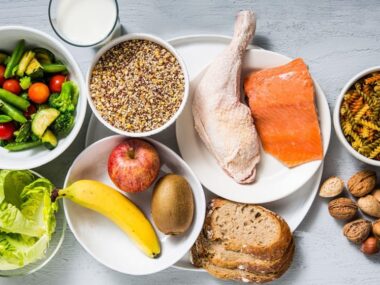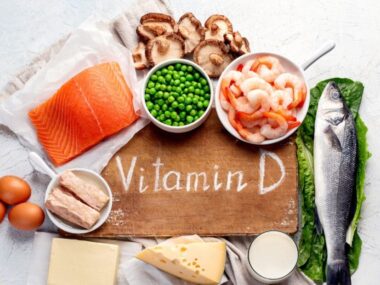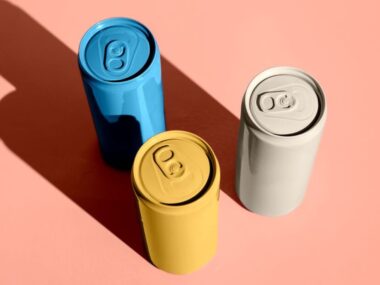Sometimes the extra effort of preparing how to re-load an empty tank seems more difficult than it actually is after planning and carrying out a workout—whether it be a challenging HIIT set or a protracted yoga flow.
You may have heard that the combination of macronutrients in a post-workout snack matters when deciding which one to choose. However, there is significant ambiguity surrounding the precise calibration of your macros, particularly carbohydrates. Although there has been some dissension regarding eating carbs after exercise, both scientific studies and professional opinion favour the consumption of carbohydrates to speed up recovery.
In conclusion, it’s a good idea to eat carbs after exercise. Learn how, when, and why you should reach for them in the following paragraphs.
Are Carbs Necessary After Exercise?
You generally don’t need to refuel with carbohydrates after a modest activity like a brisk walk or stretching session during your lunch break. But if your workout was more intense, it probably depleted your glycogen reserves—the body’s primary energy source for intense workout.
Muscle tissue starts to break down when the muscles’ glycogen stores are low. Eating carbs is essential for supporting the body’s repair and regrowth. “Carbohydrates post-workout help the body release insulin, which in turn restores the glycogen stores that were just used during your training session,” explains nutritionist and personal trainer Anthony DiMarino, RD, CPT, of Eat Move Improve.
RELATED: 6 Shocking Things that Happen to Your Body after Childbirth
Pairing carbs with protein improves how well they accomplish this. The pace at which the body stores glycogen is accelerated by the combination of proteins and carbohydrates.
Benefits of Post-Workout Carbs
A crucial macronutrient for post-exercise recovery is carbohydrates. Here are four wonderful reasons to enjoy a dish of potatoes or a bowl of pasta after a strenuous workout.
Carbs Promote Muscle Recovery
Although you may believe that protein is the only macronutrient that helps you gain muscle, carbs also play a supportive role in this process. Amino acids are the building blocks of protein, and carbohydrates help them reach muscles more quickly, accelerating muscular growth and recovery. Additionally, they aid in boosting protein synthesis and reducing protein degradation.
Carbs Help Reduce Cortisol
When you replenish your carbohydrate storage to keep your blood sugar consistent, it could have the knock-on effect of bringing down cortisol levels since it rises in response to low blood sugar and is frequently referred to as “the stress hormone.”
Carbs Help Prevent Post-Workout Fatigue
You could feel as though you’re running on fumes when you’ve depleted your stores because the body likes to use glycogen for energy during vigorous activity. Reintroducing carbohydrates to your diet can make you recover more quickly and with less fatigue.
Additionally, studies demonstrate that eating carbs after workout increases one’s potential for endurance throughout subsequent sessions. Having a high-carb snack today could help you perform better tomorrow.
Carbs Help Blood Sugar Control
Exercise generally lowers blood sugar levels. Never hold off on grabbing a carb-rich food to get your glucose levels back in the positive range. As a result, uncomfortable hypoglycemia symptoms including shakiness, headache, fogginess, and a rapid heartbeat can be avoided.
Carbs to Choose After a Workout
You might ask whether all carbohydrates are created equal when it comes to eating after a workout now that you know they’re okay after your cool-down. Not precisely. According to DiMarino, complex carbohydrates would be better because they can easily be converted to glycogen. Complex carbohydrates are found in fiber-rich foods such whole grains, vegetables, beans, and potatoes.
However, eating high-fiber foods shortly after a vigorous workout may occasionally cause stomach issues. Simple carbs may be tolerated better after exercise, according to DiMarino. To find the foods that are ideal for you, it’s crucial to test out various combinations while exercising.
In terms of the ideal carbohydrate intake, DiMarino suggests the following suggestions: “Typically, 15 to 45 grammes of carbohydrate (with more carbs after harder sessions) would be reasonable after a workout. It has been demonstrated that a ratio of 3–4 carbs to proteins is advantageous. By replenishing the glycogen stores depleted during workout sessions and repairing muscular damage, this combination enables your body to recuperate.
Post-Workout Meals and Snacks
Consider these meals and snacks for a mix of carbohydrates and protein after a sweat session:
- Turkey sandwich on whole wheat
- Crackers and hummus
- Peanut butter and banana
- A smoothie with Greek yogurt and berries
- Tuna salad with apples and almonds
When to Eat Carbs After Working Out
It’s crucial to eat carbs within a specific window of time after working out to benefit from them. The Academy of Nutrition and Dietetics advises consuming carbohydrates an hour after a strenuous activity. Just be mindful of your own tolerance for eating right after exercise; some people may prefer to consume full meals, whereas other bodies function better with a snack followed by a meal a little later.
Final Thoughts
After an exercise, eating carbs (in combination with protein) is a healthy decision that aids in recovery, repairs and rebuilds muscle, and replaces glycogen stores.
RELATED: 5 Reasons You Aren’t Losing Weight
Meeting with a licenced dietitian who specialises in sports nutrition could be quite beneficial if you’re trying to optimise your post-workout meals and snacks. The finer nuances of macronutrient-based meal planning for every form of physical exercise, from strength training to endurance sports, are taught to these professionals.





